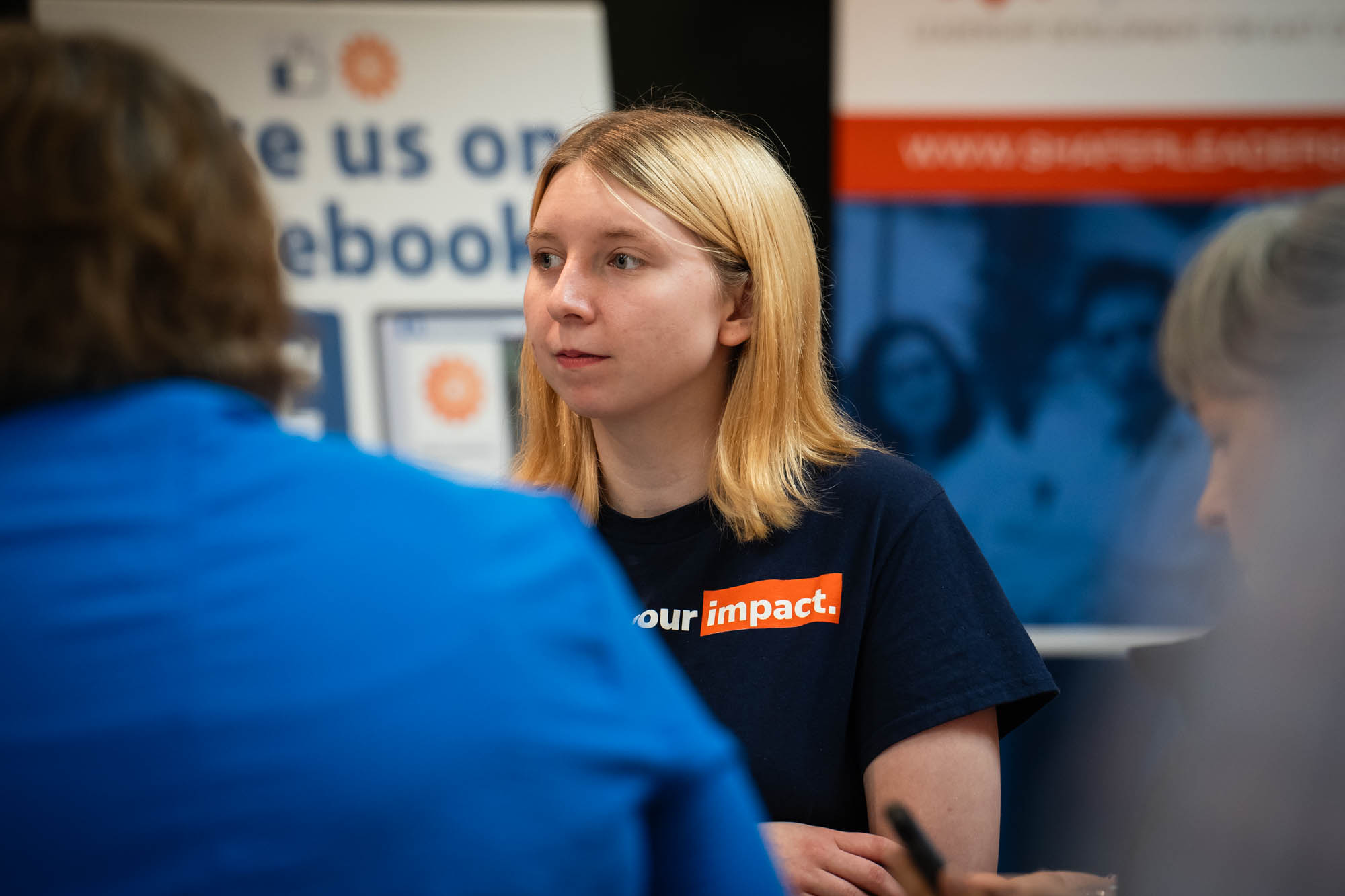Written by: Alicia Van Duyn SLA Summer 2023 Intern
The goal is not perfection, the goal is progress.
Those were the words that one of my psychology professors, Professor Mathieu-Frasier, had put up on the screen the first day of class this past spring semester for her research methods in psychology course. I remember staring at those few words for the moment that she gave us to take them all in, and finally deciding to write them in big bold letters at the top of my notes for the class. For every paper, large assignment, or presentation I had to complete the rest of that semester, not just in her course, I went back to this note and I used it as motivation to keep trying even when I didn’t think what I was turning in was perfect.
If you don’t know me, I am an overachiever and a perfectionist who grew up alongside students in honors, AP, and dual credit courses, who were the same way. I have always been familiar with racing to be first and with everything being a competition, which often led to me forgetting to pause and make sure I fully understood concepts I learned or reflecting on how I’ve grown as a student along the way. However, as I sat in that classroom on the first day of research methods, I realized that although I have been surrounded by this constant thought in the back of my mind about class rankings and test scores, I have also been surrounded by an abundance of leaders in my life who reminded me all the time that it is okay to not be perfect.
One of the earliest examples of this, of course, was in my household. It’s very common for many students in advanced courses, to have parents or guardians who are very strict about grade expectations, however, my parents would tell us every time we brought home report cards that if we got a bad grade, it didn’t matter much so long as we tried the best that we could and we put in the effort to earn that grade. They knew they weren’t perfect, their kids weren’t perfect, and that no one can be perfect all the time, so it isn’t necessary to beat yourself up over a bad test score or grade in a class.
In addition to my parents, I’ve also had educators such as Mrs. Selvey and Mr. Shermeta who have made it their goal to guarantee that their students knew how much their growth meant to them over a few letter grades. Mrs. Selvey has stood in the front of the class before, pointing to each letter of the word FAIL written up on the whiteboard saying that it stands for “First Attempt In Learning” and that your failures are proof that you are trying and you are learning, so don’t let them stop you. Shermeta has welcomed students to be creative in how they show their learning in his classroom without being locked down to a few tests that control a single letter grade at the end of the semester, and has encouraged students to grow through discussions in the classroom and through their own projects. There as well have been countless other teachers within the community who have reminded me and many other students to take breaks and not be so hard on ourselves.
I’ve even heard the same message about perfection and progress when I did The Muncie Youth Leadership Program run by Shafer Leadership Academy my freshman year, as one of the students to join the first group they ever had. Despite wanting my group’s project to be this perfectly designed project, it was often a shifting work of progress because we all had so many different great ideas. We went through many ideas for projects and goals to go with them before settling on the one we finally went with, and even still there were times when we edited small details before presenting it. It was difficult because it was obvious that we were all very anxious to make things look perfect, and it was the first year of this program, so we didn’t have many examples to refer to from our community. However, Mitch let us know in every check-in with my group and the others, that it was okay if we messed up a step or we had to go back to the drawing board. Our goal was never to create the most perfect project, but rather to grow ourselves through giving back to the community, and if it took a few tries, that was alright.
This is the thing about leaders: they work to grow others by inspiring them, helping them, and supporting them when they need it the most. But they are not without their own struggles too, they learn to recognize their own limits and understand themselves that perfection is rarely attainable. They know that part of being human is knowing that it’s okay to start over and try again as many times as it takes, and that to be successful you do not need to be perfect. Recognizing this and shifting my perspective because of what these individuals and organizations like Shafer, have done for me so early on in my life, have all been influential in shaping me into who I am today. They have led me to explore other programs and activities, focus on my own goals, meet new people who, in turn, have continued to support my growth, lead others myself, and appreciate my community more than I could have ever imagined. I am hopeful that even if I cannot give back to everyone the same amount of influence or support as I have received throughout my life, at least one thing can be learned from me. Take it from a perfectionist: it’s okay to not be perfect, focus on your progress.
 Alicia Van Duyn is a Muncie local and a senior at Ball State University studying psychology with a minor in neuroscience. She was a graduate of Muncie Central in 2022, earning both her high school diploma and her associate degree from Ivy Tech through the high school’s dual credit program, transferring 63 college credits to Ball State. At the university, she has worked in different labs within the psychological science department, including Dr. Nardi’s Space and Time lab and Dr. Luttrell’s Attitude and Behavior lab, and has served as a teaching assistant for Prof. Mathieu-Frasier’s cognitive psychology class.
Alicia Van Duyn is a Muncie local and a senior at Ball State University studying psychology with a minor in neuroscience. She was a graduate of Muncie Central in 2022, earning both her high school diploma and her associate degree from Ivy Tech through the high school’s dual credit program, transferring 63 college credits to Ball State. At the university, she has worked in different labs within the psychological science department, including Dr. Nardi’s Space and Time lab and Dr. Luttrell’s Attitude and Behavior lab, and has served as a teaching assistant for Prof. Mathieu-Frasier’s cognitive psychology class.
She first learned about Shafer Leadership Academy during her freshman year at Muncie Central High School as a student in the first group to go through The Muncie Youth Leadership Program in 2018-2019. Since then, she has worked to empower and lead others her age in and outside of the classroom, and she took up an internship for Shafer Leadership Academy this past summer. She has a passion for psychology and mental health with plans to someday earn her doctorate in clinical psychology, and a passion for social activism.


